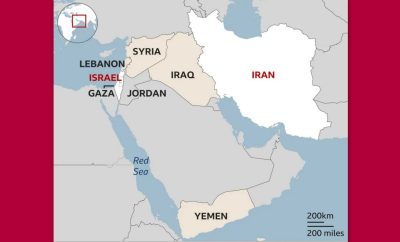
The Hellenic Countries Are Integrating Into the Middle East
A lack of EU support against Turkey, as well as continued unfair economic policies, has seen Cyprus and Greece move away from Brussels and toward the Middle East.
Greek PM Kyriakos Mitsotakis is a committed Europhile. Many Greeks, as well as Greek-Cypriots, view the EU as essential to their economic well-being, trade, and development. However, a string of disappointments regarding EU policy on the eastern Mediterranean has led both Greece and the Republic of Cyprus—the internationally recognized, ethnically Greek southern portion of the island—to begin to make a noticeable political shift toward the Middle East.
Athens and Nicosia are not leaving the EU, and this shift has been moving forward slowly for a while now. But the EU’s soft stance toward Turkey’s aggressive moves in the region as a whole has left politicians in both countries with little choice but to engage more closely with their southeastern neighbors.
Hellenism has both influenced and drawn from Middle Eastern cultures throughout history—Jewish, Arab, Persian, and Turkish alike. This is evident in Greek and Greek-Cypriot music, cuisine, language, religion, and lifestyle. Some might say Hellenism is the only remaining form of soft power from the time of antiquity.
In the modern era, however, Greece and Cyprus sought to move toward Europe. In the Greek case, it was financially dependent on European great powers after securing its independence from the Ottoman Empire, and European kings ruled the reestablished state under a foreign-established “Greek monarchy.” Britain, meanwhile, colonized Cyprus until it achieved its independence in 1960.
Συνέχεια ανάγνωσης εδώ
Πηγή: besacenter.org




